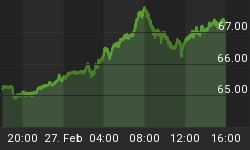Travel from China to the U.S. fell 5.7% in 2018 to 2.9 million visitors, according to the National Travel and Tourism Office (NTTO) data first reported by The Associated Press (A.P.). It was the first time in 15 years that Chinese travel to the U.S. declined on a YoY basis.
A deepening trade war between the U.S. and China is one of the main reasons behind the travel slowdown. President Trump began the trade war by first imposing tariffs on Chinese solar panels and washing machines in January 2018, and the trade war has since intensified.
Earlier this month, Trump increased the tariff on $200 billion worth of Chinese imports to 25% from10%, while China retaliated with 25% tariffs on $60 billion of U.S. imports. Trump's latest move has targeted Chinese tech companies, by outright banning their sales of telecommunication products to U.S. companies. In response, Beijing has since warned it might impose an export ban on rare-earth metals, which could create supply-chain issues for American producers of everything from microchips, to batteries, to night-vision goggles.
Last summer, China's embassy in Washington issued a travel warning to Chinese nationals traveling to the U.S. The embassy warned Chinese tourists to be conscious of the threats of public shootings and robberies, expensive medical bills, searches and seizures by customs agents, telecommunications fraud and natural disasters.
"Public security in the United States is not good. Cases of shootings, robberies, and theft are frequent," the embassy said in the alert published in July 2018.
Related: Amazon Set To Leave Many Of Its Long-Time Vendors
Last Wednesday, we noted, amid the deepening trade war, one Chinese company told all of its employees to boycott American products and halt international travel to the U.S.
Jinggang Motor Vehicle Inspection Station notified all employees on May 16 that the use of iPhones, driving in American automobiles, eating at American fast food restaurants, using American household products, and traveling to the U.S. was forbidden by a new company policy; any employee who violated the new rules would be fired.
The company's memo was emailed to employees several days after the state-run newspaper Global Times published an editorial piece that called on the Chinese public to "fight a people's war" against the U.S.
As a result of a prolonged trade war with the U.S., Jinggang Motor Vehicle said: "To help our country win this war, company authorities have decided that all employees must immediately stop all travels to the U.S."
The decline in tourism traffic to the U.S. will be felt by destinations that have come to rely on Chinese tourist in the last ten years, which includes New York City, Washington, D.C., Las Vegas, San Francisco, Niagara Falls, Universal Studios Hollywood, Hawaii, The Grand Canyon, Yellowstone, and Yosemite National Park. Related: What To Expect As Driving Season Kicks Off
Wang Haixia, who is employed at an international trade company in Beijing, recently traveled to the U.S. for her sister's graduation. She and her family spent ten days in Illinois and New York. Haixia told the A.P. that her stay was cut short because she didn't want to contribute to the American economy during the trade war.
The trade war will get worse before it gets better. China is ramping up its nationalism to use its citizens as a countermeasure tool against the U.S, by telling its citizens directly and indirectly not to travel to the US. It's possible that Chinese tourism to the U.S. on a YoY basis will plunge for the second consecutive year.
By Zerohedge
More Top Reads From Safehaven.com:
















